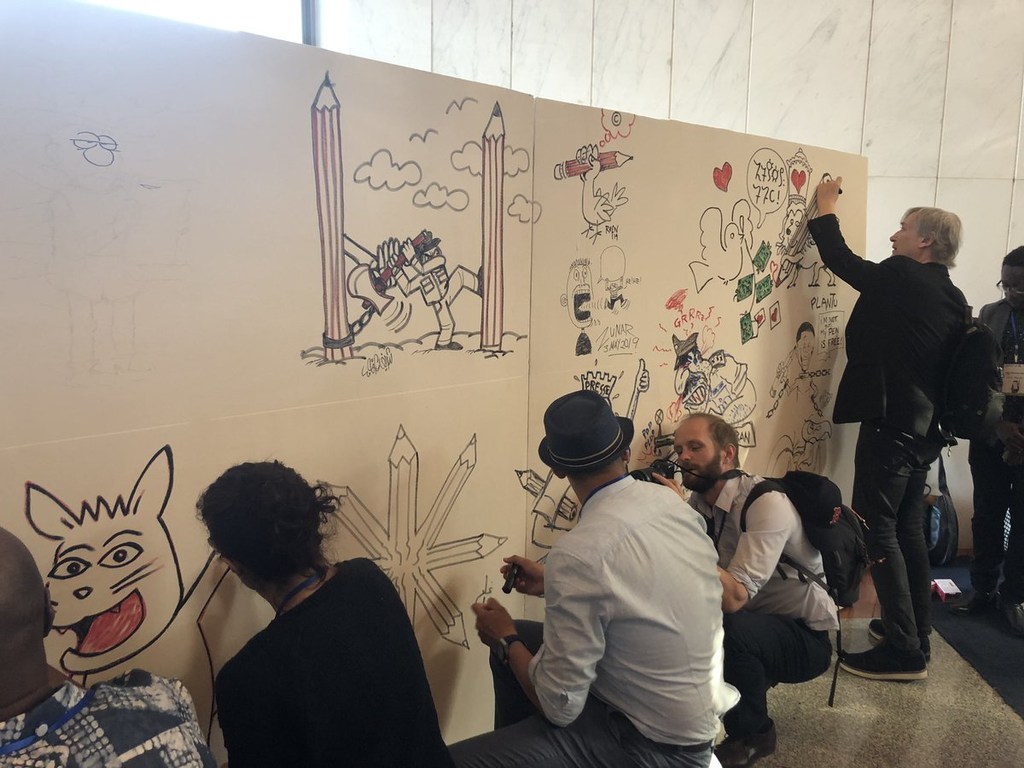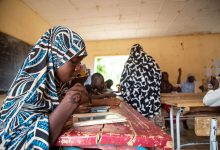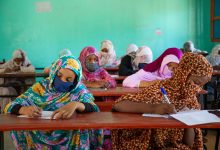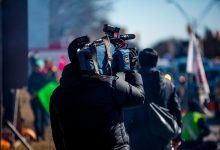Cartoonist must be released on medical grounds, urge rights experts
 An ailing Bangladeshi cartoonist who has been detained for allegedly spreading fake news about the country’s response to COVID-19, should be released immediately, UN-appointed independent rights experts said on Wednesday.
An ailing Bangladeshi cartoonist who has been detained for allegedly spreading fake news about the country’s response to COVID-19, should be released immediately, UN-appointed independent rights experts said on Wednesday.
“Criticism of Government policy, including through political satire and cartoons, is permitted under the rights to freedom of expression and cultural rights, and should not be criminalised,” the three Special Rapporteurs said in a statement.
In their appeal, the three UN Special Rapporteurs said that Ahmed Kabir Kishore – who needs insulin to treat diabetes – should be released immediately, as his health is worsening.
‘Digital security’ charges
Mr. Kishore was arrested in May after his cartoons were posted online in March and April. He was charged under the 2018 Digital Security Act for spreading false news and misinformation on the country’s COVID-19 response.
In court hearings held virtually, Mr. Kishore’s bail applications have been denied five times, and no trial date has been set, said Karima Bennoune (Special Rapporteur in the field of cultural rights), Irene Khan (Special Rapporteur on the right to freedom of opinion and expression) and Tlaleng Mofokeng (Special Rapporteur on the right of everyone to the enjoyment of the highest attainable standard of physical and mental health).
They said that the authorities had released thousands of individuals to reduce the risk of COVID-19 transmission in prisons, and that there was “no legitimate reason to refuse Mr. Kishore’s request for bail”.
In addition to requesting the immediate release of Mr. Kishore, the experts called on the authorities to drop the criminal charges against him, as per Bangladesh’s international human rights law obligations.
Dissent ‘more vital than ever’
“During the pandemic, it is more vital than ever to respect the rights of artists such as Ahmed Kabir Kishore to express dissenting views”, said the experts. “Not only are these rights internationally guaranteed, they play a vital role in promoting critical policy discussions. Silencing their voices harms their human rights – and also puts everyone at greater risk.”
Special Rapporteurs and Independent Experts belong to the Special Procedures wing of the Human Rights Council in Geneva, which itself reports to the UN General Assembly in New York.
Experts involved in “Special Procedures” are independent of the UN and do not receive a salary for their work. They carry out fact-finding missions in the name of the Human Rights Council and participate in monitoring mechanisms that address either specific country situations or thematic issues in all parts of the world.



